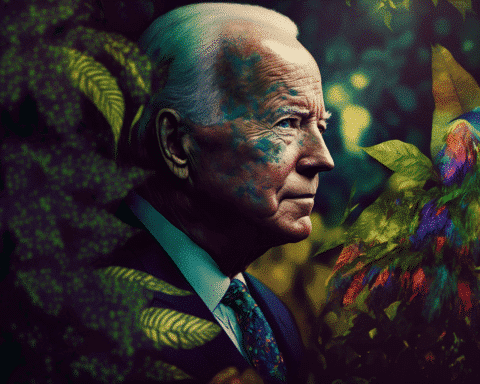The progressive shift from the tranquil reflections of nature in centuries-old poetry to activism in the blossoming field of ecopoetry is reflected in a festival in London this weekend, demonstrating the urgency of our increasingly warming climate.
The biennial event, Poetry International at the Southbank Centre, was instituted by the ex-British Poet Laureate, Ted Hughes, in 1967. Initially, it responded to the geopolitical division between the East and West during the Cold War. Now, it returns following a hiatus prompted by the pandemic lockdowns.
Given the escalating apprehension around climate change, catalyzed by unprecedented heatwaves ravaging parts of the world, the festival organizers have stated that ecopoetry is a fitting theme for the event.
Among the cohort of more than 50 poets from across the globe participating in the event is 57-year-old American poet CAConrad, who identifies as queer. Conrad has admired the creative liberty of eco-poetry, noting its lack of a prescribed form.
“Ecopoetry allows you to craft any style of poetry; the only requirement is expressing concern for our fragile ecosystem, which we see disintegrating around us,” Conrad commented.
At the festival, which runs from Friday to Sunday, Conrad will present pieces inspired by the sounds of extinct animals and “creatures that are flourishing in our current world.”
“I dream of witnessing a mink adorning a scarf made from human skin, derived from a handsome, hairy leg,” concludes one of their poems.
Also in the line-up is 30-year-old poet Nina Mingya Powles, born in New Zealand, with concerns regarding water quality. In her poem “Last Summer We Were Underwater,” she reminisces about swimming in Wellington Harbour, the beauty of which is threatened by increasing pollution.
She emphasized poetry’s potential to engage its audience and inspire positive change emotionally.
“The moment someone experiences feelings within a poem, the barriers dissolve between the human and non-human world, and to me, this dissolution embodies hope,” Powles shared.
This festival, with a poignant spotlight on ecopoetry, exemplifies the growing role of literature in raising global awareness about climate change. The verses of poets like CAConrad and Nina Mingya Powles are stark reminders of the environmental challenges we face while offering a glimmer of hope that through collective efforts and a deeper understanding of our intertwined destiny with nature, we can chart a sustainable path forward.




